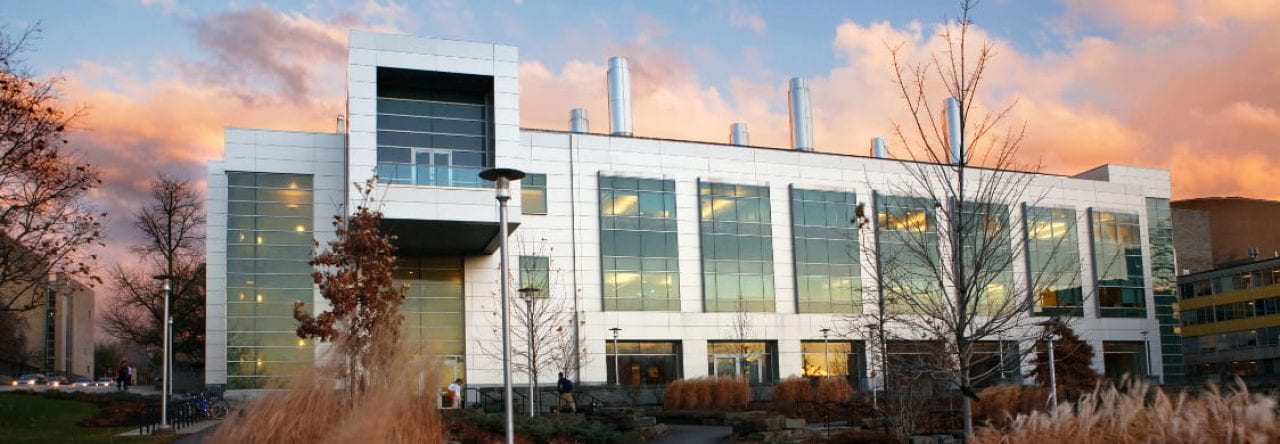Mark Wilde
Associate Professor
Electrical and Computer Engineering
Biography
Mark M. Wilde was born in Metairie, Louisiana USA. He joined the School of Electrical and Computer Engineering at Cornell University as an associate professor in July 2022.
Previously, from 2018-2022, he was Associate Professor of Physics at Louisiana State University, with a joint appointment in the Department of Physics and Astronomy and the Center for Computation and Technology. He was Assistant Professor of Physics with the same affiliations from 2013-2018. From 2009-2013, he was a Postdoctoral Fellow in the School of Computer Science at McGill University. He received the Ph.D. degree in electrical engineering in 2008 from the University of Southern California, the M.Sc. degree in electrical engineering in 2004 from Tulane University, and the B.Sc. degree in computer engineering in 2002 from Texas A&M University. He has held visiting appointments at the University of Cambridge, the Stanford Institute for Theoretical Physics at Stanford University, the Autonomous University of Barcelona, and the Research Laboratory for Electronics at the Massachusetts Institute of Technology.
He is a recipient of the National Science Foundation Career Development Award, he is a co-recipient of the 2018 AHP-Birkhauser Prize, awarded to “the most remarkable contribution” published in the journal Annales Henri Poincare, and he is an Outstanding Referee of the American Physical Society.
Research Interests
Quantum Shannon/information/communication theory, quantum computation/algorithms, quantum optical communication, quantum computational complexity theory, and quantum error correction
What are the ultimate limits that nature imposes on communication and computation and what are effective procedures for achieving these limits? These are the questions that drive my research, and in order to answer them convincingly, we must reassess the theories of information and computation under a “quantum lens.” That is, since quantum mechanics represents our best understanding of microscopic physical phenomena and since information is ultimately encoded into a physical system of some form, it is necessary for us to revise the laws of information and computation established many years ago by intellectual giants such as Shannon and Turing. This is not merely an academic exercise, but instead represents one of the most exciting new frontiers for physics, mathematics, computer science, and engineering. Entanglement, superposition, and interference are all aspects of quantum theory that were once regarded as strange and in some cases, nuisances. However, nowadays, we understand these phenomena to be features that are the enabling fuel for a new quantum theory of information and computation, in which seemingly magical possibilities such as teleportation are becoming reality. Several notable examples are computational speedups in quantum computing, increased communication capacities of noisy communication channels, secure encryption based on physical principles, and enhanced precision in measurements. Concepts developed in the context of quantum information theory are now influencing other areas of physics as well, such as quantum gravity, condensed matter, and thermodynamics. Furthermore, quantum information theory has given us a greater understanding of the foundations of quantum mechanics and might eventually lead to a simpler set of postulates for quantum mechanics.
Selected Publications
- Marius Junge, Renato Renner, David Sutter, Mark M. Wilde, Andreas Winter, “Universal recovery from a decrease of quantum relative entropy,” Annales Henri Poincare, vol. 19, no. 10, pages 2955–2978, October 2018. arXiv:1509.07127
- Tom Cooney, Milan Mosonyi, and Mark M. Wilde, “Strong converse exponents for a quantum channel discrimination problem and quantum-feedback-assisted communication,” Communications in Mathematical Physics, vol. 344, no. 3, pages 797–829, June 2016. arXiv:1408.3373
- Masahiro Takeoka, Saikat Guha, and Mark M. Wilde, “Fundamental rate-loss tradeoff for optical quantum key distribution,” Nature Communications vol. 5, no. 8, page 5235, October 2014. arXiv:1504.06390
- Mark M. Wilde, Andreas Winter, and Dong Yang, “Strong converse for the classical capacity of entanglement-breaking and Hadamard channels via a sandwiched Renyi relative entropy,” Communications in Mathematical Physics vol. 331, no. 2, pages 593–622, October 2014. arXiv:1306.1586
- Mark M. Wilde, “Recoverability in quantum information theory,” Proceedings of the Royal Society A, vol. 471, no. 2182, page 20150338, October 2015. arXiv:1505.04661
- Patrick Hayden, Kevin Milner, Mark M. Wilde. “Two-message quantum interactive proofs and the quantum separability problem,” Proceedings of the 28th IEEE Conference on Computational Complexity, pages 156-167, Palo Alto, California, June 2013. arXiv:1211.6120
- Mark M. Wilde, Patrick Hayden, Francesco Buscemi, and Min-Hsiu Hsieh, “The information-theoretic costs of simulating quantum measurements,” Journal of Physics A: Mathematical and Theoretical, vol. 45, no. 45, page 453001, November 2012. arXiv:1206.4121
- Mark M. Wilde, Patrick Hayden, and Saikat Guha, “Information trade-offs for optical quantum communication,” Physical Review Letters, vol. 108, page 140501, April 2012. arXiv:1206.4886
- Todd A. Brun, Jim Harrington, and Mark M. Wilde, “Localized closed timelike curves enable perfect state distinguishability,” Physical Review Letters, vol. 102, page 210402, May 2009. arXiv:0811.1209
Selected Awards and Honors
- Outstanding Referee of American Physical Society (2021)
- LSU Rainmaker Mid-Career Scholar Award (Science, Technology, Engineering & Mathematics) (2019)
- AHP-Birkhauser Prize, awarded to “the most remarkable contribution” published in the journal Annales Henri Poincare (2018)
- LSU College of Science Faculty Research Award (2016)
- LSU Alumni Association Rising Faculty Research Award (2015)
- National Science Foundation Career Development Award (2014)
- APS-IUSSTF Professorship Award in Physics (2014)
- Senior Member of the IEEE (2013)
- Centre de Recherches Mathematiques Thematic Postdoctoral Fellowship (2011-2013)
Education
- Ph.D., University of Southern California (Electrical Engineering), 2008.
- M.S., Tulane University (Electrical Engineering), 2004.
- B.S., Texas A&M University (Computer Engineering), 2002.





